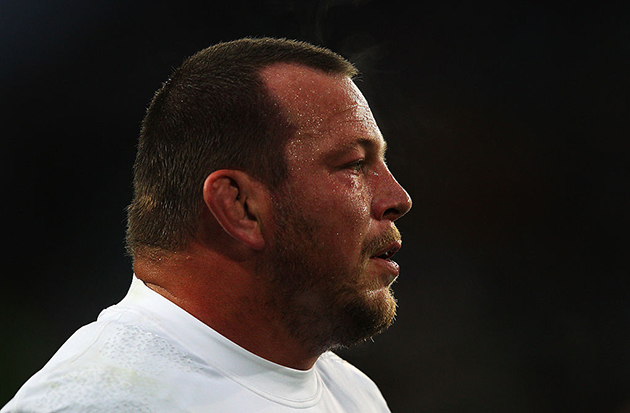Former players plan to sue global governing body, the RFU and the WRU
World Rugby facing concussion lawsuit
World Cup winner Steve Thompson is one of eight former players who are planning to launch a legal action for negligence against World Rugby, the RFU and the WRU over the effects of concussion.
All the players in the group, which also includes Alix Popham and Michael Lipman, are under the age of 45 and have been diagnosed with early onset dementia, which they believe is due to brain injuries suffered while playing rugby.
Ex-England hooker Thompson cannot remember winning the World Cup in Australia in 2003 while former Wales international Popham’s memory loss led to him causing a fire at his home after he left the grill on.
Lipman, 40, said: “This is something I will be battling forever and ultimately I won’t win. I am a walking time bomb. I feel like I am treading on eggshells with myself.”
The players allege that given the significant risk of serious or permanent brain damage caused by concussions, World Rugby, RFU and WRU “owed them, as individual professional players, a duty to take reasonable care for their safety by establishing and implementing rules in respect of the assessment, diagnosis and treatment of actual or suspected concussive and sub-concussive injuries”.
"If it dripped once or twice, there'd be no mark on the floor but if it dripped for 14 years, there would be a big hole."
Aged just 40, former rugby international Alix Popham was diagnosed with early onset dementia. He could be in a care home by the time he's 50.
Full story:
— BBC Sport (@BBCSport) December 8, 2020
The eight players are part of a test group and their solicitor Richard Boardman, of Rylands Law, says he is representing more than 100 former professional players who are showing similar symptoms.
In response to news of the legal case, World Rugby told BBC Sport: “While not commenting on speculation, World Rugby takes player safety very seriously and implements injury-prevention strategies based on the latest available knowledge, research and evidence.”
Boardman says that the lawsuit is not only about financial compensation but making the game safer going forward. The players have also created a set of 15 health and safety commandments that they think should be implemented.
The proposals include reducing contact training, limiting the number of substitutions in a game, improved testing and better aftercare.

Seeking redress: Michael Lipman, here playing for Bath in 2007, is part of the group taking action (Getty)
Ipek Tugcu, Senior Associate in the Brain Injury Team at Bolt Burdon Kemp, says: “To win, the players must prove that they suffered brain injuries because the defendants (World Rugby, RFU and WRU) failed to take reasonable steps to protect them from the known risk of brain injury. What is ‘reasonable’ will be determined by the information known, or ought to have been known, at the time of the events.
“This is not easy and will require consideration of volumes of documents to identify what information was available on the risks at the time and evidence from independent medical experts regarding the link between the players’ brain injuries and any failings. It wouldn’t be unusual for this to take years. A legal action of this magnitude is bound to have significant implications for athletes, especially rugby players, suffering from brain injuries.
“If successful, it will set a precedent for others to come forward relying on the similar grounds. The impact on rugby’s governing bodies would be astronomical – the financial payouts per athlete could easily reach six-figure sums or more, as they will need to cover all injuries and financial losses suffered due to the injury.
“Money aside, I would expect very swift and robust changes to be made to the game to fill in any gaps which could leave the governing bodies open to more legal action.”
Can’t get to the shops? You can download the digital edition of Rugby World straight to your tablet or subscribe to the print edition to get the magazine delivered to your door.
Follow Rugby World on Facebook, Instagram and Twitter.





